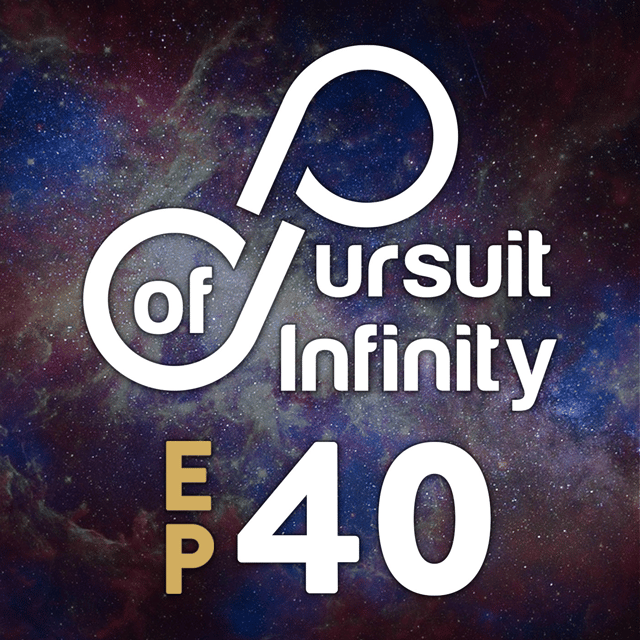

In this week’s episode, Joe and I answer a set of philosophical questions that are meant to be thought provoking and in some cases challenging. I hope you enjoy these types of episodes as much as we do. The questions act as thought prompts, allowing us to explore ideas and see where we meet and where we differ. This particular set of questions was massive so we didn’t get through all of them, but will be continuing with them in a future episode.
_________________
Music By Nathan Willis RIP
Follow Pursuit Of Infinity:
www.PursuitOfInfinity.com
Discord: https://discord.io/pursuitofinfinity
YouTube: https://www.youtube.com/channel/UCPpwtLPMH5bjBTPMHSlYnwQ
Spotify: https://open.spotify.com/show/58he621hhQ7RkajcmFNffb
Apple Podcasts: https://podcasts.apple.com/ca/podcast/pursuit-of-infinity/id1605998093
Instagram: https://www.instagram.com/pursuitofinfinitypod/
Patreon: Patreon.com/PursuitOfInfinity

In this week’s episode, Joe and I answer a set of philosophical questions that are meant to be thought provoking and in some cases challenging. I hope you enjoy these types of episodes as much as we do. The questions act as thought prompts, allowing us to explore ideas and see where we meet and where we differ. This particular set of questions was massive so we didn’t get through all of them, but will be continuing with them in a future episode.
_________________
Music By Nathan Willis RIP
Follow Pursuit Of Infinity:
www.PursuitOfInfinity.com
Discord: https://discord.io/pursuitofinfinity
YouTube: https://www.youtube.com/channel/UCPpwtLPMH5bjBTPMHSlYnwQ
Spotify: https://open.spotify.com/show/58he621hhQ7RkajcmFNffb
Apple Podcasts: https://podcasts.apple.com/ca/podcast/pursuit-of-infinity/id1605998093
Instagram: https://www.instagram.com/pursuitofinfinitypod/
Patreon: Patreon.com/PursuitOfInfinity




















